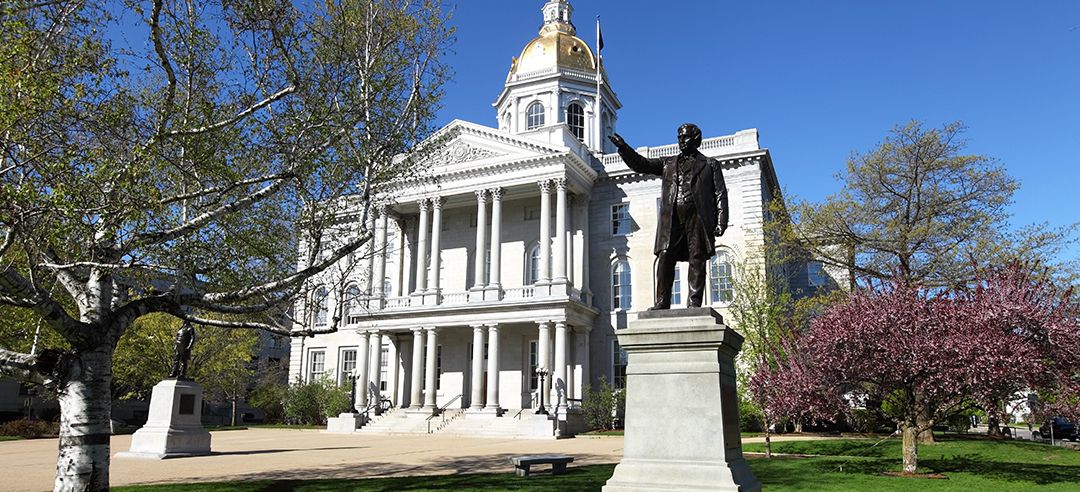Legislative Update: January 28, 2020
Private wells legislation passes House
By BOB QUINN
Vice President of Government Affairs
Here are a few items being explored in the New Hampshire legislature that are of potential interest to the real estate community and being watched closely by your New Hampshire REALTORS government affairs team:
Private wells legislation passes House
Last week, the House of Representatives passed House Bill 667, which would require a pump installer to test the water in any newly constructed well that will not serve a public water system. The pump installer would need to provide the laboratory’s report of the required tests to the current owner of the property.
The legislation also seeks to alter portions of RSA 477:4-a, which mandates certain notifications to buyers of real estate (Section 12 of NHAR’s Purchase and Sale agreement). HB 667 would eliminate the arsenic notification and replace it with language dealing with “Contaminants Common in Well Water.”
The NH Department of Environmental Services has developed a standard, “New Hampshire Well Water Test for Home Buyers,” which they and some other labs will offer and includes 13 contaminants often found in wells. The new notification requirement will suggest buyers request this test.
NHAR worked with the DES and the legislative committee reviewing the bill to ensure HB 667 does not contain a state mandate on property owners to test or remediate private wells.
The bill will now move to the Senate.
Increasing deed recording fees: mandatory or voluntary?
Last session, Governor Sununu vetoed legislation, Senate Bill 74, which would have increased the mandatory deed recording fee from $25 to $35. Those funds are used for the Land Conservation and Heritage Investment Program (LCHIP). The same language, with its mandatory fee increase, has been reintroduced this session as Senate Bill 493.
However, an alternative bill, Senate Bill 617, has also been introduced, which would make the additional $10 fee optional at the discretion of the party responsible for paying. NHAR prefers this approach.
Both bills include language which NHAR helped craft last session, enabling a “Committee to Study the Economic Impact of Land Conservation and to Review the LCHIP Surcharge.” The committee is designed to review current patterns of land conservation of all types in New Hampshire, including state, municipal, federal and private land preservation efforts, as well as look at the impact of conservation efforts on the affordability of housing.
NHAR testified in favor of SB 617.
Relief to property owners dealing with new water standards?
A definite maybe.
Over the past two years, the legislature has directed the NH Department of Environmental Services to lower enforceable drinking water standards for both arsenic and a class of contaminants collectively referred to as PFAS chemicals. Those standards applied to public and community water systems – which includes many condo and homeowners associations, manufactured housing parks as well as some business parks.
The cost to test and remediate for these contaminants can be expensive, and the state is exploring ways to lessen the financial impact for municipalities as well as privately-owned community water systems. Senate Bill 641 would create a “Per and PolyFluoroalkyl Substances (PFAS) Fund,” to create a loan fund and establish a grant program for “disadvantaged” municipalities to assist those impacted by the new PFAS rules to remediate. House Bill 1603, meanwhile, would take a slightly different approach but essentially accomplishes the same loan and grant fund.
NHAR supports the intent behind both bills. However, neither provides real funding. That will be left for the next budget process or any legal settlement dollars with manufacturers of PFAS chemicals.
The new PFAS water quality standards are currently tangled up in litigation and on hold while the arsenic rules are still about a year off from becoming enforceable.
If you have questions regarding these or any other pieces of legislation from the 2020 New Hampshire legislative session, please contact New Hampshire REALTORS Vice President of Government Affairs Bob Quinn at bob@nhar.com or 603-225-5549.

